
Academic publishing is the subfield of publishing which distributes academic research and scholarship. Most academic work is published in academic journal articles, books or thesis. The part of academic written output that is not formally published but merely printed up or posted on the Internet is often called "grey literature". Most scientific and scholarly journals, and many academic and scholarly books, though not all, are based on some form of peer review or editorial refereeing to qualify texts for publication. Peer review quality and selectivity standards vary greatly from journal to journal, publisher to publisher, and field to field.
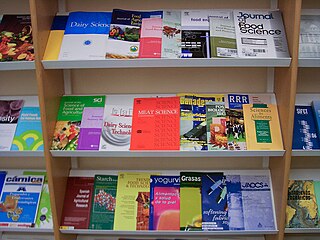
An academic journal or scholarly journal is a periodical publication in which scholarship relating to a particular academic discipline is published. Academic journals serve as permanent and transparent forums for the presentation, scrutiny, and discussion of research. They nearly universally require peer review for research articles or other scrutiny from contemporaries competent and established in their respective fields.

Open access (OA) is a set of principles and a range of practices through which research outputs are distributed online, free of access charges or other barriers. With open access strictly defined, or libre open access, barriers to copying or reuse are also reduced or removed by applying an open license for copyright.
Scopus is Elsevier's abstract and citation database launched in 2004. Scopus covers 36,377 titles from 11,678 publishers, of which 34,346 are peer-reviewed journals in top-level subject fields: life sciences, social sciences, physical sciences and health sciences. It covers three types of sources: book series, journals, and trade journals. Scopus also allows patent searches in a dedicated patent database Lexis-Nexis, albeit with a limited functionality.

Google Scholar is a freely accessible web search engine that indexes the full text or metadata of scholarly literature across an array of publishing formats and disciplines. Released in beta in November 2004, the Google Scholar index includes peer-reviewed online academic journals and books, conference papers, theses and dissertations, preprints, abstracts, technical reports, and other scholarly literature, including court opinions and patents.

The Directory of Open Access Journals (DOAJ) is a website that hosts a community-curated list of open access journals, maintained by Infrastructure Services for Open Access (IS4OA). It was launched in 2003 with 300 open access journals.
Svetlana Chmakova is a Russian-Canadian comic book artist. She is best known for Dramacon, an original English-language (OEL) manga spanning three volumes and published in North America by Tokyopop. Her other original work includes Nightschool and Awkward for Yen Press. She has been nominated for an Eisner Award twice. Previously, she created The Adventures of CG for CosmoGIRL! magazine and the webcomic Chasing Rainbows for Girlamatic.

PLOS One is a peer-reviewed open access mega journal published by the Public Library of Science (PLOS) since 2006. The journal covers primary research from any discipline within science and medicine. The Public Library of Science began in 2000 with an online petition initiative by Nobel Prize winner Harold Varmus, formerly director of the National Institutes of Health and at that time director of Memorial Sloan–Kettering Cancer Center; Patrick O. Brown, a biochemist at Stanford University; and Michael Eisen, a computational biologist at the University of California, Berkeley, and the Lawrence Berkeley National Laboratory.
Comics studies is an academic field that focuses on comics and sequential art. Although comics and graphic novels have been generally dismissed as less relevant pop culture texts, scholars in fields such as semiotics, aesthetics, sociology, composition studies and cultural studies are now re-considering comics and graphic novels as complex texts deserving of serious scholarly study.
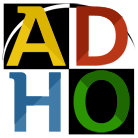
The Alliance of Digital Humanities Organizations (ADHO) is a digital humanities umbrella organization formed in 2005 to coordinate the activities of several regional DH organizations, referred to as constituent organizations.
Graphic medicine connotes the use of comics in medical education and patient care.

Predatory publishing, also write-only publishing or deceptive publishing, is an exploitative academic publishing business model that involves charging publication fees to authors while only superficially checking articles for quality and legitimacy, and without providing editorial and publishing services that legitimate academic journals provide, whether open access or not. Namely, the rejection rate of predatory journals is low, but seldom is zero. The phenomenon of "open access predatory publishers" was first noticed by Jeffrey Beall, when he described "publishers that are ready to publish any article for payment". However, criticisms about the label "predatory" have been raised. A lengthy review of the controversy started by Beall appears in The Journal of Academic Librarianship.
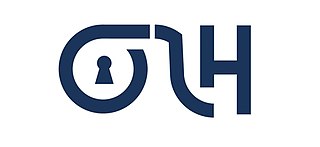
The Open Library of Humanities is a nonprofit, diamond open access publisher in the humanities and social sciences founded by Martin Paul Eve and Caroline Edwards. Founded in 2015, OLH publishes 27 scholarly journals as of 2022, including a mega journal, also called Open Library of Humanities, which was modeled on PLOS but not affiliated with it.
OurResearch, formerly known as ImpactStory, is a nonprofit organization that creates and distributes tools and services for libraries, institutions and researchers. The organization follows open practices with their data, code, and governance. OurResearch is funded by the Alfred P. Sloan Foundation, the National Science Foundation, and Arcadia Fund.
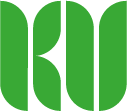
Knowledge Unlatched (KU) is an Open Access service provider registered as a for-profit GmbH in Berlin, Germany, and owned by multinational commercial publishing company Wiley as of December 2021. It offers a crowdfunding model to support a variety of Open Access book and journal content packages as well as the financial funding of partnerships.

Acadiensis: Journal of the History of the Atlantic Region is a semi-annual peer-reviewed academic journal covering the history of Atlantic Canada. The current editors-in-chief are Erin Morton and Peter Twohig. It is published by the Department of History at the University of New Brunswick, with articles in either English or French. The name Acadiensis originated with an earlier periodical with the same name, a general interest quarterly magazine for the Maritime provinces, with an emphasis on local history. It was published in Saint John, New Brunswick by David Russell Jack from 1901 to 1908 but failed due to insufficient financial support.
The Winnower was a publishing platform and journal that offered traditional scholarly publishing tools to enable rigorous scholastic discussion of topics across all areas of intellectual inquiry, whether in the sciences, humanities, public policy, or otherwise. Between 2014 and 2016, The Winnower published and archived the following:
Glossa: A Journal of General Linguistics is a peer-reviewed open access academic journal covering general linguistics. It was established in 2016. The journal is published by the Open Library of Humanities and the editor-in-chief is Johan Rooryck.
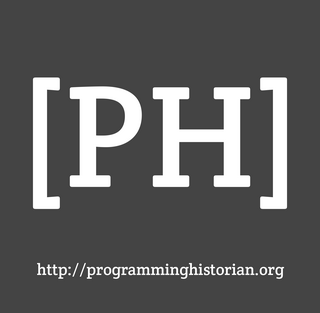
The Programming Historian is a peer-reviewed academic journal of digital humanities and digital history methodology. This flagship resource for digital humanities research methods publishes tutorials that help humanities scholars learn a wide range of digital tools, techniques, and workflows to facilitate research and teaching. The original project was based upon a series of lessons written by William J. Turkel and Alan MacEachern of the University of Western Ontario in 2008. The project launched as an academic journal during the Digital Humanities 2012 conference in Hamburg.
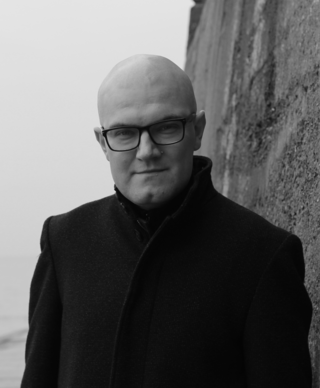
Martin Paul Eve is a British academic, writer, computer programmer, and disability rights campaigner. He is the Professor of Literature, Technology and Publishing at Birkbeck College, University of London, Principal R&D Developer at Crossref, and was Visiting Professor of Digital Humanities at Sheffield Hallam University until 2022. He is known for his work on contemporary literary metafiction, computational approaches to the study of literature, and open-access policy. Together with Dr Caroline Edwards, he is co-founder of the Open Library of Humanities (OLH).













